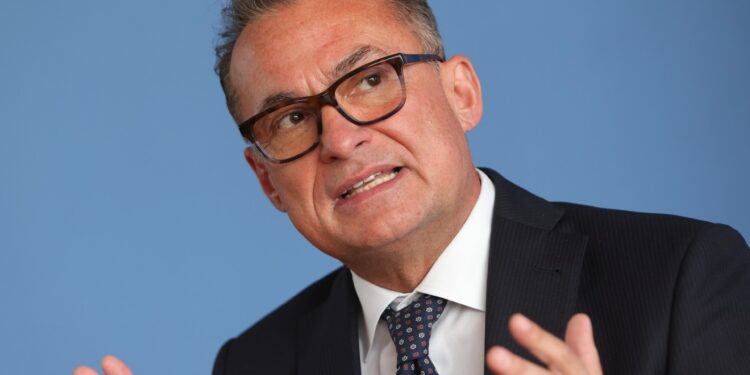European Central Bank policymakers should remain vigilant even as consumer price growth is set to slow to 2% by the end of next year, Bundesbank President Joachim Nagel said.
“If we look at the inflation rate for this year and next, we expect to reach our target by the end of 2025 at the latest,” Nagel added at the central bank’s open day in Frankfurt on Saturday.
“But I also know, unfortunately, that when it comes to dealing with inflation, we have to stay focused because there are a lot of things, like energy prices, that the central bank can’t control,” he continued.
The German central bank governor’s comments came after the European Central Bank cut interest rates for the second time since June and confirmed economic forecasts for consumer price growth of between 2.2% next year and 1.9% in 2026.
Nagel reiterated that forecast on Sunday, saying he was “pretty sure” that 2% could be achieved by the end of next year, adding that the September 12 cut in borrowing costs was “consistent” with that view. However, Nagel said that on inflation, “we are not yet where we want to be.”
Nagel’s comments come days after Mario Draghi, the former president of the European Central Bank and former Italian prime minister, warned of the continent’s deepening economic decline, describing the situation as a “slow-motion agony” resulting from years of economic and investment neglect.
Draghi explained that Europe is not facing a sudden crisis so much as it is in the midst of a “slow-burn” due to years of neglect. According to the 400-page report, Europe needs additional investments of up to 800 billion euros (about $881 billion) a year to boost its deteriorating economy.
He noted that Europe could no longer rely on factors that had helped offset slow productivity growth, such as strong global demand, cheap Russian energy, and geopolitical stability.
German economy
Nagel considered that more efforts are needed to get the German economy out of its current predicament. He said that Germany’s economic growth is stable, and may be at 0% or less by the end of the year.
“Unfortunately, we have an aging population. We have to look at how we can recruit qualified people for jobs where we clearly have demographic problems,” he added.
Germany’s economy shrank unexpectedly in the second quarter, and economists are worried about its prospects for 2024, as they expect annual growth of just 0.1%.
German economic watchers fear that recent news from the auto industry, including Volkswagen’s warning that it may close factories, could exacerbate the situation.
Nagel warned that there are no “quick or easy solutions” to the current challenges, adding that “economic progress and competitiveness require a joint effort from everyone.”



